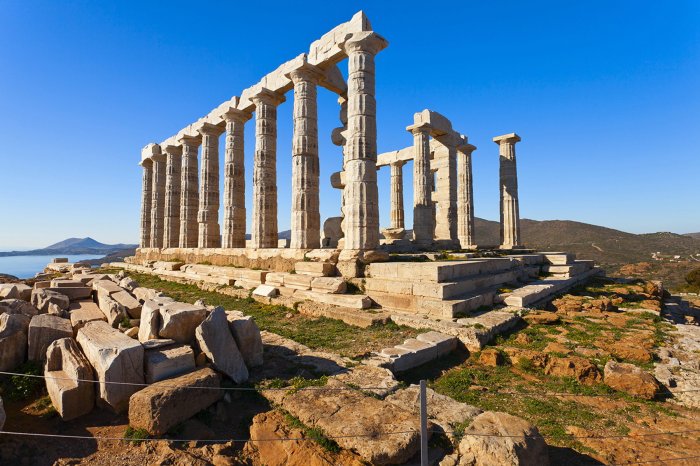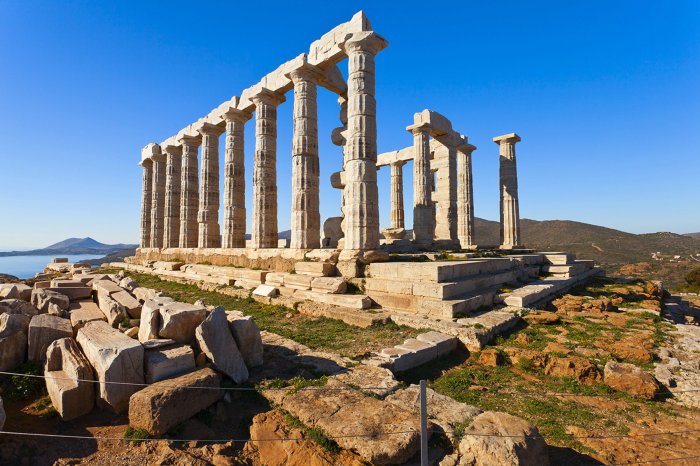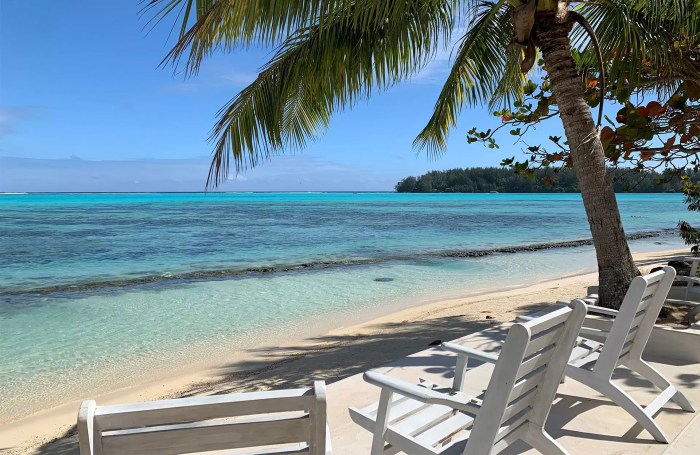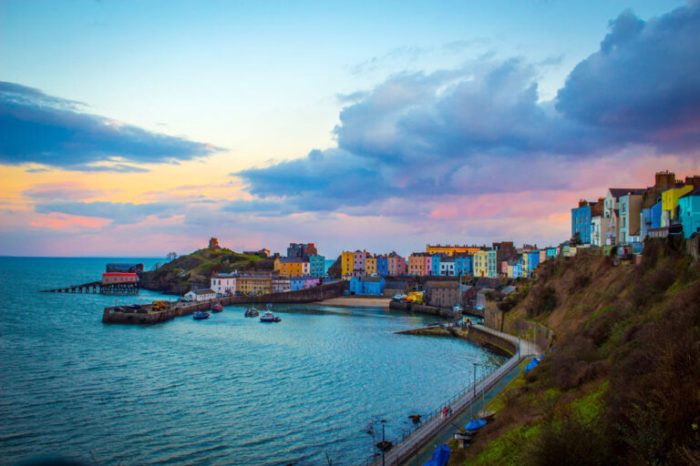Immerse yourself in the annals of time as we embark on a journey to the best Greek islands for history. From ancient ruins to legendary landscapes, these islands offer a captivating tapestry of civilizations, mythology, and historical significance.
Prepare to be transported to the cradle of Western civilization, where every stone whispers tales of empires, heroes, and divine encounters. Discover the islands that inspired Homer’s epics, witnessed the rise and fall of ancient city-states, and played a pivotal role in shaping the course of human history.
Historical Significance
The Greek islands are a treasure trove of historical significance, having been home to some of the world’s oldest and most influential civilizations. From the Minoans of Crete to the ancient Greeks of Athens and Sparta, these islands have witnessed the rise and fall of empires, the birth of democracy, and the development of art, literature, and philosophy.
Archaeological Sites and Historical Landmarks
The islands are dotted with archaeological sites and historical landmarks that attest to their rich past. On Crete, the ruins of the Minoan palace of Knossos provide a glimpse into the sophisticated civilization that flourished there over 4,000 years ago.
In Santorini, the Akrotiri excavation site offers a fascinating look at a Bronze Age settlement that was destroyed by a volcanic eruption. The ancient city of Ephesus on the island of Samos is another must-see, with its well-preserved ruins including the Temple of Artemis, one of the Seven Wonders of the Ancient World.
Mythology and Legends
The Greek islands are also steeped in mythology and legends. Many of the islands are associated with Greek gods and goddesses, and their stories are often woven into the fabric of local culture. For example, the island of Rhodes is said to have been created by the god Helios, while the island of Delos is believed to be the birthplace of the god Apollo.
Must-Visit Historical Sites
The Greek islands are a treasure trove of historical sites, offering a glimpse into the ancient world and its rich history. From ancient ruins to awe-inspiring temples and museums, these sites provide a tangible connection to the past and offer a deeper understanding of Greek culture and civilization.
Acropolis of Athens
The Acropolis of Athens is an ancient citadel located on a high rocky hill above the city of Athens. It is one of the most important historical sites in Greece and a UNESCO World Heritage Site. The Acropolis was home to several important temples, including the Parthenon, the Erechtheion, and the Temple of Athena Nike.
These temples were built during the Golden Age of Athens in the 5th century BC and are considered some of the finest examples of classical Greek architecture.
Delphi
Delphi was an ancient sanctuary and oracle located on the slopes of Mount Parnassus in central Greece. It was one of the most important religious sites in the ancient world and was consulted by people from all over Greece and beyond.
The sanctuary was home to the Oracle of Delphi, who was believed to be able to foretell the future. The site also contains a number of temples, including the Temple of Apollo, the Temple of Athena Pronaia, and the Tholos.
Epidaurus, Best greek islands for history
Epidaurus was an ancient sanctuary and healing center located in the Peloponnese region of Greece. It was dedicated to the god Asclepius, who was the god of healing. The sanctuary was home to a number of temples, including the Temple of Asclepius, the Temple of Artemis, and the Tholos.
The site also contains a large theater, which is considered one of the finest examples of ancient Greek architecture.
Knossos
Knossos was the capital of the Minoan civilization, which flourished on the island of Crete from around 2700 to 1450 BC. The palace of Knossos is one of the most important archaeological sites in Greece and is considered one of the oldest and most complex palaces in the world.
The palace was home to a number of royal apartments, storage rooms, and workshops. It also contains a number of frescoes and other works of art that provide a glimpse into Minoan life and culture.
Mycenae
Mycenae was a major center of power during the Bronze Age in Greece. The city was home to a number of palaces and fortifications, including the Lion Gate, which is one of the most iconic images of ancient Greece. Mycenae was also the home of Agamemnon, the leader of the Greeks in the Trojan War.
The city was destroyed by fire around 1200 BC, but the ruins of the city are still visible today.
Olympia
Olympia was the site of the ancient Olympic Games, which were held every four years from 776 BC to 393 AD. The games were a major religious and sporting event, and they attracted athletes from all over Greece and beyond.
The site of Olympia contains a number of temples, including the Temple of Zeus, the Temple of Hera, and the Temple of Nike. It also contains a number of sports facilities, including the stadium and the gymnasium.
Santorini
Santorini is a Greek island in the Aegean Sea. The island is known for its stunning scenery, which includes whitewashed houses, blue-domed churches, and dramatic cliffs. Santorini is also home to a number of archaeological sites, including the ancient city of Akrotiri.
Akrotiri was destroyed by a volcanic eruption around 1600 BC, and the ruins of the city have been preserved under a layer of ash. The site contains a number of buildings, including houses, shops, and workshops. It also contains a number of frescoes and other works of art that provide a glimpse into Minoan life and culture.
Historical Walking Tours: Best Greek Islands For History
Immerse yourself in the rich tapestry of Greek history through captivating walking tours that unveil the islands’ historical landmarks and captivating stories.
To enhance your experience, consider engaging the services of local guides or reputable tour operators who possess in-depth knowledge of the region’s history and can provide insightful commentary.
Sample Walking Tour Itinerary
Design a walking tour itinerary that showcases the historical highlights of a specific Greek island. Include a map or create a table with directions and historical information for each stop.
Rhodes Old Town
- Palace of the Grand Master of the Knights of Rhodes:Explore the imposing fortress that once served as the stronghold of the Knights Hospitaller, with its intricate architecture and panoramic views.
- Street of the Knights:Stroll along this picturesque cobblestone street lined with medieval buildings that housed the knights of different nationalities.
- Archaeological Museum of Rhodes:Discover ancient artifacts and sculptures that narrate the island’s rich history from prehistoric times to the Roman period.
Cultural Heritage and Traditions
The Greek islands are a treasure trove of cultural heritage and traditions, shaped by centuries of history, geography, and religion. Each island has its own unique customs and practices, reflecting the diverse influences that have shaped the region.
The islands’ cultural heritage is evident in their traditional festivals, dances, and cuisine. Many festivals are rooted in ancient religious practices and celebrate the changing seasons or commemorate important events in Greek history. Traditional dances, such as the syrtaki and the zeibekiko, are performed at weddings, festivals, and other social gatherings.
Traditional Festivals
- Easter:Celebrated with great fervor throughout Greece, Easter is a time of religious processions, feasts, and fireworks.
- Pentecost:Also known as Whit Sunday, this festival marks the descent of the Holy Spirit upon the apostles. It is celebrated with church services and outdoor picnics.
- Assumption of Mary:Celebrated on August 15th, this festival commemorates the Assumption of the Virgin Mary into heaven. It is a major religious holiday in Greece, with processions and feasts held in her honor.
Traditional Dances
- Syrtaki:A popular dance performed at weddings and other social gatherings, the syrtaki is characterized by its slow, graceful movements and intricate footwork.
- Zeibekiko:A traditional dance from Asia Minor, the zeibekiko is a solo dance performed by men. It is characterized by its improvisational nature and expressive movements.
- Hasapiko:A traditional dance from Constantinople, the hasapiko is a fast-paced dance performed by men. It is characterized by its energetic steps and clapping.
Traditional Cuisine
Greek cuisine is renowned for its freshness, simplicity, and use of local ingredients. Many traditional dishes have been passed down through generations, and they often reflect the island’s unique geography and climate.
- Seafood:The Greek islands are surrounded by the Mediterranean Sea, so seafood is a staple of the local cuisine. Fresh fish, squid, and octopus are often grilled, fried, or baked.
- Olive oil:Greece is one of the world’s largest producers of olive oil, and it is used liberally in Greek cooking. Olive oil is used in dressings, marinades, and as a dipping sauce for bread.
- Feta cheese:A white brined cheese made from sheep’s milk or goat’s milk, feta is a staple of Greek cuisine. It is used in salads, pastries, and as a topping for grilled meats.
Historical Museums and Exhibitions

The Greek islands are home to a wealth of historical museums and exhibitions that offer visitors a glimpse into the rich history and culture of the region. These museums house collections of artifacts, relics, and documents that tell the story of the islands from ancient times to the present day.
Some of the most notable historical museums on the Greek islands include:
Archaeological Museum of Thera, Santorini
- Displays artifacts from the ancient Minoan city of Akrotiri, which was destroyed by a volcanic eruption in the 16th century BC.
- The museum’s collection includes frescoes, pottery, and other objects that provide insights into the daily life and culture of the Minoans.
Archaeological Museum of Delos, Mykonos
- Houses artifacts from the ancient city of Delos, which was one of the most important religious and commercial centers in the Aegean Sea.
- The museum’s collection includes sculptures, pottery, and other objects that tell the story of Delos from its founding in the 11th century BC to its decline in the 1st century AD.
Archaeological Museum of Rhodes, Rhodes
- Displays artifacts from the island of Rhodes, which has been inhabited since prehistoric times.
- The museum’s collection includes sculptures, pottery, and other objects that tell the story of Rhodes from its founding by the Dorians in the 11th century BC to its conquest by the Ottomans in the 16th century AD.
Naval Museum of Greece, Athens
- Located in the former Hellenic Royal Palace, the Naval Museum of Greece houses a collection of artifacts and documents that tell the story of the Greek navy from ancient times to the present day.
- The museum’s collection includes ship models, uniforms, and other objects that provide insights into the history and traditions of the Greek navy.
Historical Figures and Events
The Greek islands have witnessed countless historical events and have been home to many influential figures. These individuals and events have shaped the islands’ rich cultural heritage and continue to inspire visitors today.
Key historical events that have taken place on the islands include the Battle of Salamis, the rise of the Minoan civilization, and the Venetian occupation. These events have left a lasting impact on the islands’ architecture, culture, and traditions.
Historical Figures
Some of the most notable historical figures associated with the Greek islands include:
- Homer, the legendary poet who is said to have written the Iliad and the Odyssey.
- Alexander the Great, the Macedonian king who conquered much of the known world.
- Cleopatra, the last pharaoh of Egypt, who was known for her beauty and intelligence.
- Aristotle, the philosopher who founded the Lyceum in Athens.
- Hippocrates, the father of medicine.
Historical Timeline
The following timeline provides an overview of some of the key historical events that have taken place on the Greek islands:
| Date | Event |
|---|---|
| c. 2000 BCE | Minoan civilization flourishes on Crete. |
| c. 1450 BCE | Mycenaean civilization emerges on the mainland. |
| c. 1200 BCE | Trojan War takes place. |
| c. 800 BCE | Homer composes the Iliad and the Odyssey. |
| c. 500 BCE | Battle of Salamis takes place. |
| c. 336 BCE | Alexander the Great becomes king of Macedonia. |
| c. 146 BCE | Greece becomes a Roman province. |
| c. 330 CE | Constantine the Great makes Christianity the official religion of the Roman Empire. |
| c. 1204 CE | Fourth Crusade conquers Constantinople. |
| c. 1453 CE | Ottoman Turks conquer Constantinople. |
| c. 1821 CE | Greek War of Independence begins. |
| c. 1832 CE | Greece becomes an independent nation. |
Historical Literature and Art
The Greek islands have inspired countless literary and artistic works throughout history. Ancient Greek historians, poets, and philosophers wrote extensively about the islands, their people, and their culture. Homer’s epic poems, the Iliad and the Odyssey, are set in the Aegean Sea and feature many of the islands.
The Greek historian Herodotus wrote about the Persian Wars, which were fought in part on the islands of Salamis and Plataea. The philosopher Plato wrote about the ideal society in his Republic, which he set on the island of Atlantis.In
addition to literature, the Greek islands have also been the subject of many famous paintings, sculptures, and other artworks. The ancient Greek sculptor Phidias created a massive statue of Zeus for the Temple of Zeus at Olympia, which was one of the Seven Wonders of the Ancient World.
The painter Apelles created a famous painting of Alexander the Great, which was said to be so lifelike that it made Alexander blush. In the modern era, many artists have been inspired by the Greek islands, including the painter Claude Monet and the sculptor Henry Moore.
For history enthusiasts, the Greek islands offer a treasure trove of ancient ruins and historical sites. From the iconic Acropolis of Athens to the ruins of Knossos on Crete, there’s no shortage of places to explore the rich past of this captivating region.
And while you’re there, why not take a refreshing dip in one of the many blue lagoon alternatives that dot the coastline? These secluded coves and pristine beaches offer a tranquil escape from the crowds, and a chance to immerse yourself in the beauty of the Greek islands.
Literary Works
The Greek islands have been the setting for many famous works of literature, including:
- The Iliad and the Odyssey by Homer
- The Histories by Herodotus
- The Republic by Plato
- The Tempest by William Shakespeare
- Zorba the Greek by Nikos Kazantzakis
Artistic Depictions
The Greek islands have also been depicted in many famous works of art, including:
- The statue of Zeus at Olympia by Phidias
- The painting of Alexander the Great by Apelles
- The painting View of the Acropolis from the Areopagus by Claude Monet
- The sculpture Reclining Figure by Henry Moore
Historical Island Hopping
Embark on a captivating journey through time by island hopping among the history-rich Greek islands. Discover ancient ruins, explore medieval castles, and delve into the cultural heritage that has shaped these lands for centuries.
Suggested Itinerary
A well-planned itinerary allows you to maximize your historical exploration:
-
-*Day 1-2
Athens
- Start your journey in the cradle of Western civilization. Visit the Acropolis, the Parthenon, and the Ancient Agora to immerse yourself in ancient Greek history.
- Ferry to the cosmopolitan island of Mykonos. Explore the archaeological site of Delos, a UNESCO World Heritage Site, and uncover the remains of an ancient city-state.
- Take a scenic ferry ride to the breathtaking island of Santorini. Visit the prehistoric settlement of Akrotiri, preserved under layers of volcanic ash, offering a glimpse into the Bronze Age civilization.
- Embark on a ferry to Crete, the largest Greek island. Explore the Palace of Knossos, the legendary seat of the Minoan civilization, renowned for its intricate architecture and vibrant frescoes.
- Take a ferry to the medieval island of Rhodes. Wander through the fortified Old Town, a UNESCO World Heritage Site, and admire the imposing Palace of the Grand Masters.
-*Day 3-4
Mykonos
-*Day 5-6
Santorini
-*Day 7-8
Crete
-*Day 9-10
Rhodes
Accommodation
Each island offers a range of accommodation options to suit your preferences and budget. From charming guesthouses to luxurious resorts, you’ll find comfortable and convenient places to rest after your historical adventures.
Historical Sites
Each island boasts a wealth of historical sites, ensuring a captivating experience for history enthusiasts:
-
-*Athens
Acropolis, Parthenon, Ancient Agora, National Archaeological Museum
-*Mykonos
Archaeological Site of Delos, Mykonos Windmills
-*Santorini
Prehistoric Settlement of Akrotiri, Ancient Thera
-*Crete
Palace of Knossos, Archaeological Museum of Heraklion
-*Rhodes
Old Town of Rhodes, Palace of the Grand Masters, Archaeological Museum of Rhodes
Historical Tours and Experiences
Historical tours and experiences on the Greek islands offer immersive journeys into the past. From guided tours of ancient ruins to private excursions to historical landmarks, these experiences bring history to life.
Guided Tours
Guided tours are a convenient and informative way to explore the historical sites of the Greek islands. These tours are typically led by knowledgeable guides who provide insights into the history, culture, and significance of the sites. Guided tours are available for various durations and cover a range of historical periods.
-
-*Acropolis of Athens Guided Tour
This tour takes you through the iconic Acropolis of Athens, showcasing its ancient temples, statues, and breathtaking views.
-*Delphi Guided Tour
Explore the ruins of the ancient oracle of Delphi, learning about its religious and political significance.
-*Mycenae Guided Tour
Discover the ancient city of Mycenae, home to the legendary Agamemnon and the Lion Gate.
Private Excursions
Private excursions offer a more personalized and tailored historical experience. These excursions can be customized to your interests and schedule, allowing you to delve deeper into specific historical themes or visit lesser-known historical sites.
-
-*Private Tour of the Archaeological Museum of Athens
Explore the treasures of the Archaeological Museum of Athens with a private guide, uncovering the history of ancient Greece through its artifacts.
-*Private Excursion to the Temple of Poseidon at Sounion
Take a scenic drive to the Temple of Poseidon at Sounion, perched on a cliff overlooking the Aegean Sea.
-*Private Boat Tour to the Island of Hydra
Visit the historical island of Hydra, known for its maritime heritage and picturesque harbor.
Immersive Historical Reenactments
Immersive historical reenactments transport you back in time, allowing you to experience history firsthand. These reenactments involve actors in period costumes, demonstrations of ancient crafts, and interactive activities.
-
-*Ancient Agora Reenactment in Athens
Step back into the bustling streets of the Ancient Agora, where actors bring the marketplace and political life of ancient Athens to life.
-*Siege of Rhodes Reenactment
Witness a thrilling reenactment of the epic siege of Rhodes, complete with knights in armor and medieval weaponry.
-*Battle of Marathon Reenactment
Participate in a reenactment of the legendary Battle of Marathon, where the Greeks triumphed over the Persian army.
Conclusion
As we conclude our exploration of the best Greek islands for history, we leave you with a profound appreciation for the enduring legacy of this ancient land. May your travels through these historical gems ignite a passion for the past and inspire you to delve deeper into the rich tapestry of human civilization.
Answers to Common Questions
What are the must-visit historical sites in Greece?
The Acropolis of Athens, the Palace of Knossos in Crete, the Temple of Zeus at Olympia, the ancient city of Delphi, and the archaeological site of Mycenae are among the most iconic historical sites in Greece.
Which Greek islands offer the best historical walking tours?
The islands of Rhodes, Corfu, and Crete offer excellent historical walking tours that showcase their rich heritage and architectural wonders.
What are some unique cultural traditions found on the Greek islands?
The Greek islands are known for their vibrant cultural traditions, including traditional dances like the syrtaki, colorful festivals like the Panigiri, and unique culinary delights such as moussaka and baklava.



